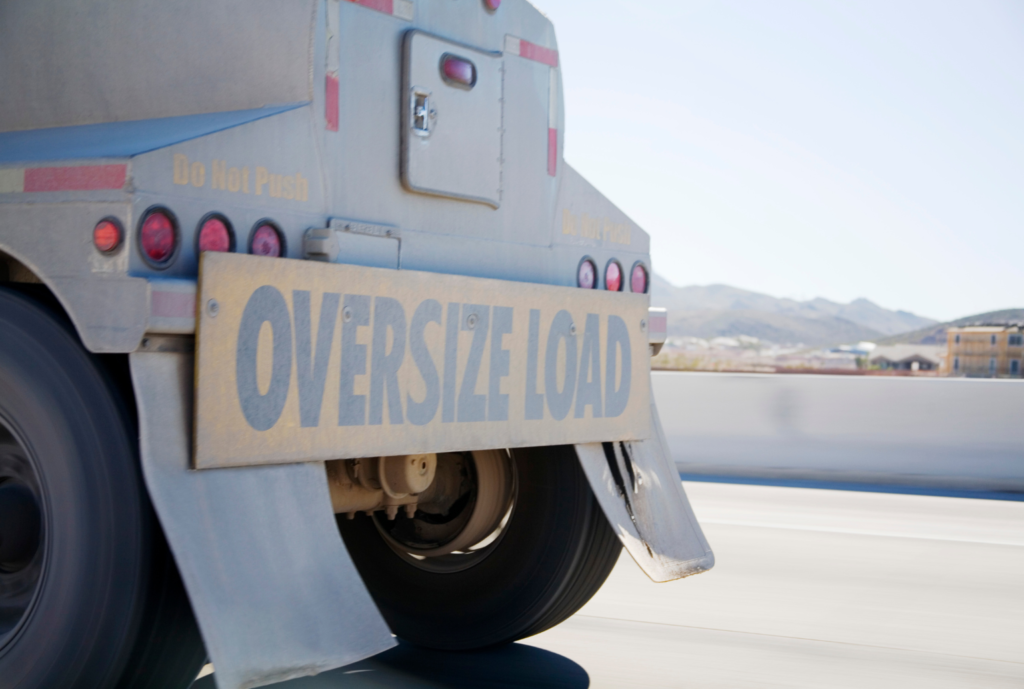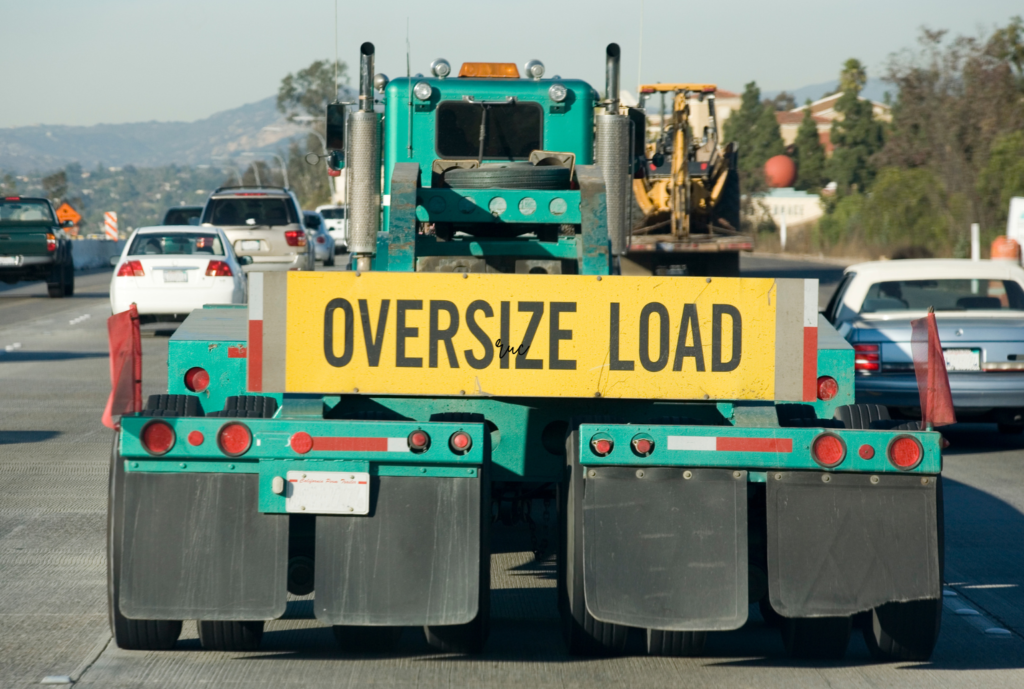According to the Department of Transportation, oversize or wide loads of 600 million tons per year travel on roadways. Each year, around 5 million permits are issued.
Although it can be a successful industry, wide load trucking has additional safety requirements. When transporting large or heavy items, you may be required to purchase safety banners, flags, and escort cars as well as obtain permissions in each state you visit. Additionally, there can be limitations on the times and routes you can travel.
A wide load is a shipment that is wider, taller, and heavier than the state’s interstate shipping restrictions. If your cargo is broader than 8.5 feet, it is likely to be categorized as an oversize or wide load and will need state-by-state permission.
If your load is more than 8.5 feet tall, 48 feet long, or 46,000 pounds in weight, your shipment can also be considered a wide load. State-specific regulations differ. In certain states, for instance, the entire length is measured. The length from the kingpin to the rear axle is measured by others. Each axle is subject to weight limits.
The size of the roads makes width the most important issue. Lower road categories are narrower than the normal 12-foot-wide interstate lane. You may also need to comply with additional criteria, such as lights, signage, and escort cars, depending on the state, load, and route.
Types Of Oversize Or Wide Loads
The type of freight carried by oversize load trucks can vary greatly. Large construction, agricultural, and manufacturing equipment might all qualify as overside or wide loads. Here are a few examples of shipments that often qualify as wide load shipments.
- Equipment used in manufacturing, such as conveyors, generators, or grinders
- Equipment used in construction, such as bulldozers, cranes, backhoes, storage tanks, or dump trucks
- Equipment used in agriculture, such as tractors, harvesters, threshers, or bailers
- Materials for construction: steel beams or frames, pipes
- Both prefabricated homes and mobile homes
- Vehicles such as trucks and boats
Oversize Truck Load State Regulations And Permits
The federal government does not issue oversize load permits. Regulations and permits are handled at the state level. For a multi-state shipment, that means checking the regulations in each state and getting the appropriate permits state by state.
To apply for permits as a carrier, you must have liability insurance that satisfies state requirements. Typical insurance requirements could include the following liability thresholds:
- $750,000 for routine oversize loads
- $2,000,000 for super heavy oversize loads
- $2,000,000 for non-commercial building movement
Besides permits, many states also require you to travel on specific routes when using state roadways. You will need to submit the exact route you plan to take when applying for a permit.
Be aware that some communities and cities require permitting as well. Only some states, such as Georgia, will issue permits on behalf of local agencies. Other states will make you aware of local requirements when you file your route, but you will still be responsible for applying for and getting local permits.

Important Things To Keep In Mind When Carrying Wide Loads
Transporting wide loads is subject to different regulations in each state. Here are some of the things you need to consider when designing your journey.
Permits
In order to keep the appropriate permits up to date, check with each state along your journey or use a permission agency.
You may be fined thousands of dollars for violations such as failing to get permits or complying with regulations. If you violate the law, deviate from your permitted route, or travel during prohibited hours, your permits may be suspended or revoked.
Scheduling
For safety concerns, most states place limitations on when big loads can travel on public roads. Transport is typically prohibited at night, on weekends, and on holidays. Most states only permit shipments 30 minutes before sunrise and 30 minutes after dusk if a pilot vehicle is needed.
Protective Gear
You should make sure other drivers are aware of your wide load and take extra care when driving close to you for everyone’s safety. The majority of states mandate that broad loads be equipped with lights, wide load or oversize load banners, and flags as safety measures.
An “Oversize Load” or “Wide Load” banner must be displayed at the front and rear of the vehicle according to most state regulations. Oversize loads also need to have a square red or orange flag at each corner of the load whenever it is broader than the truck bed. Its standard size is 18 inches.
You might be obliged to have lights on your vehicle in the same location as the flags if you’re driving at night or in bad weather. In several states, the truck cab must additionally have revolving or flashing lights.
Escort Vehicles
Some state regulations require escort or pilot vehicles. Escort vehicles are passenger cars that travel around an oversize load to provide a buffer zone for protection and alert other drivers of a wide load. Some states require escort vehicles for all wide loads. Others only mandate escort vehicles for loads more than 10 to 12-feet wide.
In some circumstances, you are required to supply two escort cars, one in the front and one in the back.
Travel Times
Additionally, allowed travel times differ from state to state and occasionally from town to town.
Although there are some exceptions, many states only permit heavy loads during the day. For instance, on interstate or four-lane divided highways, some jurisdictions permit oversized loads up to 10 feet wide to travel at night.
There are also restrictions on weekends and holidays in many states. In some cases, you might not be able to travel after a certain time on the day before a holiday due to increased traffic loads.
Expenses
Depending on the size and weight of the load, state-specific permit fees might range from $15 to $70 or more. For carriers who frequently carry broad loads, some states let you set up an account with lower fees. Look into annual permits if you frequently transport the same types of loads.
To learn more about oversized load truckings and other trailers, please visit our website by clicking this link.



